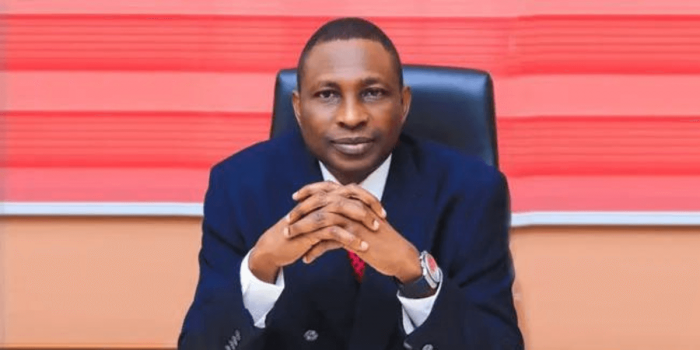The Chairman of the Economic and Financial Crimes Commission (EFCC), Olanipekun Olukoyede, has reaffirmed the agency’s commitment to strengthening collaboration with the media and Civil Society Organisations (CSOs) as part of a broader strategy to combat economic and financial crimes across Nigeria.
Olukoyede made this known during a sensitisation workshop for journalists and CSOs held in Kano on Thursday.
Represented by the Acting Zonal Director of the EFCC’s Kano Directorate, Sa’ad Hanaf, the chairman said the initiative was crucial because the fight against corruption must be a collective national effort built on cooperation, trust, and shared intelligence.
“Our fight against corruption is not a solo mission; it is a collective national endeavour that requires synergy, trust, and shared intelligence,” Olukoyede stated.
“What we aim to achieve through this workshop is a stronger and more collaborative relationship between the EFCC and your esteemed organisations.”

He explained that the engagement with CSOs and the media was deliberate and strategic, describing both groups as “critical drivers of change.”
“CSOs serve as the conscience of society and a bridge between government and citizens, while journalists wield the powerful pen that shapes public opinion, holds power accountable, and exposes corruption. Together, you are indispensable allies in safeguarding our economy and our collective future,” he added.
According to Olukoyede, the workshop focused on raising awareness about cryptocurrency fraud, emerging cyber and financial crimes, and the legal complexities involved in prosecuting such offences.
He noted that the initiative would also help promote a preventive and citizen-driven approach to tackling corruption, while equipping participants with the tools to identify and report modern financial crimes effectively.
The workshop was attended by members of the Correspondents’ Chapel of the Nigeria Union of Journalists (NUJ), Kano State Council, as well as representatives of various Civil Society Organisations operating in the state.




